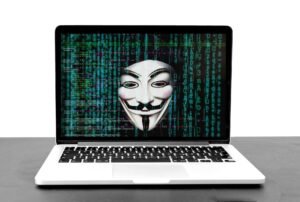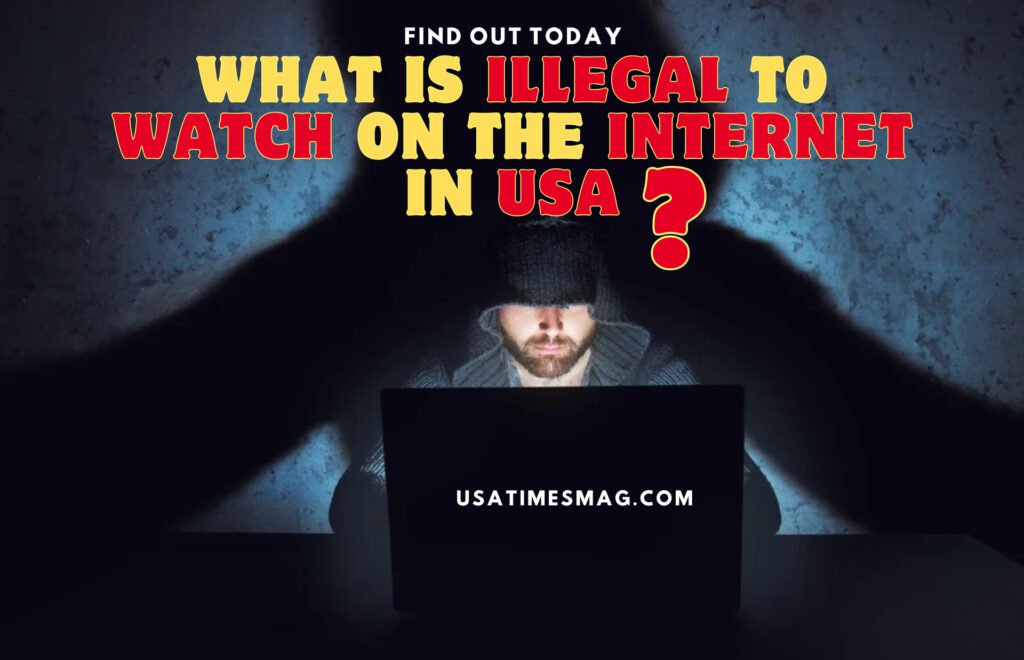The internet offers a vast expanse of information and entertainment, but not all content is lawful to view. In the United States, certain materials are illegal to access, and engaging with them can lead to severe legal consequences. Understanding What is Illegal to Watch on the Internet in USA is crucial for responsible internet use.
Table of Contents
ToggleChild Pornography
The viewing, possession, distribution, and production of child pornography are strictly illegal under both federal and state laws. This includes any sexually explicit content involving minors under the age of 18. Even unintentional viewing can result in severe legal consequences, including potential prison time and mandatory registration as a sex offender.
Illegal Streaming and Copyright Infringement

Using pirated streaming services or downloading pirated software, movies, or music without proper authorization is illegal. This kind of activity not only harms the content creators but also exposes the user to potential fines and penalties under copyright infringement laws.
Hate Speech, Cyberbullying, and Online Harassment
While the internet is a platform for free expression, it is illegal to engage in hate speech that incites violence, cyberbullying, or harassment, particularly when these actions target specific groups or individuals based on race, religion, gender, or other protected characteristics. Such behaviors can lead to criminal charges.
Terrorism and Extremist Material
Posting, viewing, or downloading content that promotes terrorism or extremist acts is heavily monitored and can lead to investigation and prosecution. This includes material that could potentially incite terrorist acts or violence, even if the user is merely curious or researching without intent to act.
Drugs and Controlled Substances

Searching for or purchasing illegal drugs online is not only dangerous but also illegal. Law enforcement agencies actively monitor the internet for drug-related activities, which can include the sale, purchase, or facilitation of drug trafficking.
Fraud and Phishing Activities
Engaging in or falling victim to online scams, identity theft, and phishing can lead to significant legal troubles. This includes participating in fraudulent schemes or unknowingly aiding in such activities through internet interactions.
Weapons and Explosives
Searching for information on creating or obtaining illegal weapons or explosives is a red flag for law enforcement agencies. Even if the search is for educational or curiosity purposes, it can prompt an investigation.
Unauthorized Access (Hacking)

Attempting to gain unauthorized access to computer systems, networks, or profiles, commonly known as hacking, is illegal. This includes activities meant to breach or bypass security measures to access private information or systems without permission.
Understanding Internet Censorship
Internet censorship in the USA can manifest in various forms ranging from ISP-level restrictions to individual website policies. Although the principle of net neutrality advocates for an open internet where ISPs cannot discriminate against or favor certain websites, there are still debates and discussions around this topic. Techniques like DNS tampering, IP address blocking, keyword filtering, and packet filtering are methods used to control and restrict access to content deemed inappropriate or illegal by regulatory bodies or ISPs themselves. Parental controls and workplace internet restrictions also play a significant role in what content can be accessed within those environments.
Safeguarding Yourself Legally Online
Stay Informed
The first step to protecting yourself from legal issues is education. Stay updated on laws and regulations related to online conduct and content restrictions. This includes understanding the implications of digital actions that might seem benign but are legally significant.
Use Reliable Sources
When researching sensitive or potentially illegal topics, ensure that your sources are legitimate and that your intent is clear. For academic or journalistic purposes, proper citation and adherence to ethical guidelines are crucial to avoid legal scrutiny.
Secure Your Devices
Implement strong security measures on your digital devices to prevent unauthorized access and ensure that your online actions are intentional and protected. This can include using strong, unique passwords, enabling two-factor authentication, and regularly updating software to guard against vulnerabilities.
Seek Legal Advice
If you suspect that you might be infringing on laws, or if you face legal action, consult with a lawyer who specializes in internet law. Professional legal advice is crucial in navigating the complexities of cases that involve digital evidence and online behavior.
Conclusion
The internet is not a lawless realm, and ignorance of what constitutes illegal content is often not a viable defense in court. It’s important for all internet users to be aware of the boundaries of legal content and to stay informed about the evolving landscape of internet regulations to avoid unintended legal issues. Always ensure your online activities comply with both federal and state laws to stay on the right side of the law.
FAQs about What is Illegal to Watch on the Internet in USA
Is viewing child pornography illegal?
Yes, viewing, possessing, distributing, or producing child pornography is illegal under both federal and state laws. Engaging with such material can lead to severe legal consequences, including imprisonment and mandatory registration as a sex offender.
Can you get in trouble for illegal streaming?
Yes, streaming content from unauthorized sources, especially pirated movies or TV shows, is illegal. While simply watching an unauthorized stream is not usually prosecuted, hosting, downloading, or distributing pirated content can lead to fines and imprisonment.
Is downloading movies online illegal?
Downloading movies protected by copyright without authorization is illegal. However, downloading movies that are in the public domain and not protected by copyright is legal.
What constitutes illegal content beyond pornography and pirated media?
Illegal content also includes hate speech that incites violence, material that supports terrorism, and content involved in scams like phishing. Engaging with such content can attract legal action from authorities.
Are there legal consequences for accessing dark web content?
While the dark web itself is not illegal, many activities conducted there, such as drug trafficking, weapons sales, and accessing illegal content like child pornography, are illegal. Simply accessing the dark web can raise suspicions and potentially lead to legal scrutiny.
What should I do if I accidentally access illegal content?
If you accidentally access illegal content, it’s advisable to clear your browser history and avoid revisiting such sites. If you suspect that you may be under investigation, or if you receive legal notices, it’s crucial to seek legal advice immediately.

